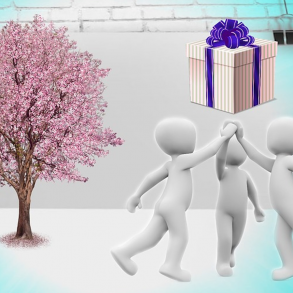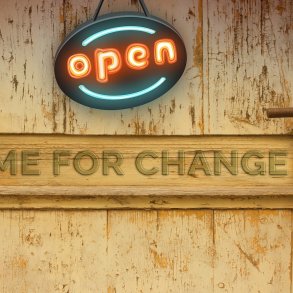By Sahana Chattopadhyay and originally published as a single article on medium.com
Part 1 of this article is here. Part 2 of this article is here.
Comfort with Uncertainty and Ambiguity:
There’s no escaping from either in a VUCA world. We will never know everything, have all the information, or complete clarity regarding any decision we need to make.
We will have to build the plane as we fly. We just have to develop our capacity to hold space for ambiguity. This is where the ability to tap into an inner compass becomes important for individuals. Organizations with obsessive focus on the measurable miss out on deep insights that come from “gut feel” and inner knowing.
However, in a VUCA world, the obvious and measurable can often delude us into focusing on the wrong problem. It is a combination of sensemaking and inner knowing that guide us in the right direction.
The ability to thrive in ambiguity also comes with an element of play. Children are quintessential explorers of the unknown, making delightful discoveries as they flow with life. We lose this ability as we grow up and crave predictability, plans, and processes.
However, if we can learn to let go off our fears — even for a short while — and listen deeply to the context and each other (generative conversations), stay with the ambiguity and sense into it, gradually the next step will emerge from collective sensemaking, which will always be much more accurate than any planned action could have been.
We go off the rails when — in the face of uncertainty — we disregard all dis-confirming information, cling to what we already know, and act from our old habits.
This is why learning to tap into the emerging future is so crucial if we truly want to make a difference. Otto Scharmer and Presencing Institute’s Theory U — Learning from the Future as it Emerges is one such facilitated process that helps individuals and teams to work with emerging future possibilities.
Systems Thinking:
As Donella Meadows wrote in her book, Thinking in Systems:
“You think that because you understand “one” that you must therefore understand “two” because one and one make two. But you forget that you must also understand “and.”
Systems Thinking is a must have skill in today’s complex, changing, non-linear world where everything is interconnected as well as interdependent. Internalizing and assimilating these two aspects are necessary to build our capacity.
When we attempt to find solutions to single problems, we invariably end up creating issues elsewhere in the systems.
Therefore, systems thinking requires us to shift from a reductionist worldview focused on dissecting and analyzing to a holistic one where we step back to see the web of connecting patterns.
One cannot understand a system by focusing on its individual elements because the whole will behave very differently.
Hence, this is a skill that is closely related to sensemaking. In fact, if an individual or a team develop the capacities of sensemaking and leaning into the emergent future, they are practicing systems thinking. Here is a great article on Tools for Systems Thinkers: The 6 Fundamental Concepts of Systems Thinking.
Reflective Practices:
Wikipedia describes this thus: “Reflective practice is the ability to reflect on one’s actions so as to engage in a process of continuous learning.” I will expand on this a bit more.
As individuals, most of us have some form of reflective practice — be it journaling, meditation, creative visualization, solitary walks in nature, or whatever works for us.
At an organizational level, we often restrict reflective practices to “project retrospectives” and haven’t yet inculcated the deep practices of reflecting on the inner conditions as well.
This would include not only looking back at past actions and what worked or didn’t but also taking a conscious look at emotions, quality of experiences, the relationships, and the overall energy flow.
Collective reflective practices can be facilitated using processes like The Circle of Trust approach designed by Parker Palmer.
As groups or teams, especially in organizational context, we are focused on doing, on tasks, on goals, on deadline. All of these are external oriented and our inner world gets ignored. By focusing on what needs to be done, we ignore how it gets done.
However, it is the “how” which creates the movement of energy, the joy of moving toward a common purpose, the flow that comes when a team operates seamlessly.
This kind of experience isn’t common. When teams invest time in reflective practices together, they build a stronger sense of oneness, of shared awareness, and can confidently lean into the emerging future. They build the capacity to hold space for what is wanting to be manifested through them — a truly co-creative experience.
As organizations grapple with the VUCA world, fostering the conditions for emergent learning could be a way to thrive and be regenerative in the face of chaos. In fact, chaos could become a partner in transformation.
Republished with permission.
Featured Image, some block quoting, and some paragraph spacing added by Enlivening Edge Magazine.




